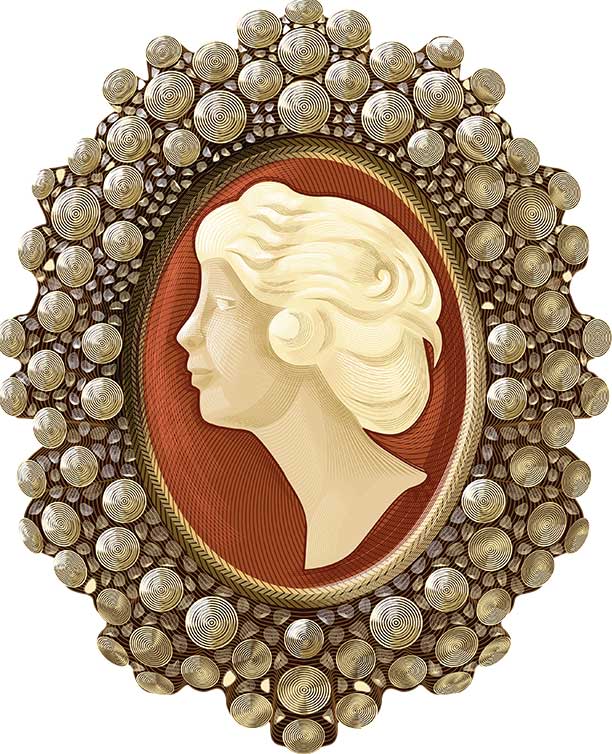Fifty-five years ago this month, at an Alumni Day luncheon with more than 1,000 guests present, Princeton President Robert F. Goheen ’40 *48 announced that Ethel Stockwell Jadwin had left $27 million to Princeton, the largest individual bequest ever given to the University. His announcement was met with silence, then a rippling gasp, and then mighty applause.
Jadwin was a figure from old New York. She lived all her life at the address where she was born: 380 Washington Ave. in Williamsburg, a three-story stone mansion that dated from the reign of Queen Victoria. She summered in Huntington Bay on Long Island. She kept seven servants on staff; she always remembered the birthdays of her employees, but her own birthday she gracefully forgot. She appeared — demurely under her husband’s name — in the Brooklyn Blue Book and Long Island Society Register, an annual listing of the region’s most envied: Jadwin, Mr. and Mrs. Stanley Palmer; Phone number: Prospect 5399. But that was the furthest she ventured into the gaudy publicity of print. Excepting, during her girlhood, occasional mentions in The New York Times’ roundups of summer news from resorts upstate (as a “Miss Ethel Stockwell of New York” who trounced opponents in pingpong tournaments), and name-only appearances in rosters of cotillions and card-club dances, she did not appear in the finger-staining ink of tabloids and broadsheets.
Her chauffeur, Edward Hendricks, told the Times after her death that he could not share a picture of her for publication. “I can’t give it out,” he said. “Mrs. Jadwin did not want anyone to have her picture. She used to tear them up.”
She kept seven servants on staff; she always remembered the birthdays of her employees, but her own birthday she gracefully forgot.
She had married another child of Brooklyn in 1905. It was a New York match: She was a descendant of the founder of an iconic New York restaurant — Sweet’s Restaurant on Fulton Street, founded in 1842 — and he was heir to the maker of an equally iconic roach insecticide. He joined his father’s wholesale drug firm, O.H. Jadwin & Sons, and from there moved to leadership roles in major drug-manufacturing companies. He belonged to the Union League Club, founded to support the Union during the Civil War, and the Riding and Driving Club, which, despite the name, favored horses over the noisy new automobiles.
The couple’s greatest joy was their only child, Leander Stockwell Jadwin 1928. At Princeton, “Stock” excelled in his classes and soared on the track. Month after month, the Princetonian reported his victories: freshman holder of a medal for the most promising hurdler, victor in races at home and abroad. In 1927 he became captain of the varsity track team and tied the world indoor record for 60-yard hurdles. In 1928, the Prince asked him to name the “most important words in the English language.” He said, “Honor, imagination, gentility, personality, fairness, temperance.”
In 1929, Leander died in a car accident on the Manhattan Bridge. Seven years later, Stanley Palmer Jadwin died unexpectedly. He left his wife more than $1 million worth of securities in drug and chemical companies. The capital accumulated; she gave more than $600,000 to Princeton while alive, and, in addition to her record-breaking bequest, she left $1 million to charities, relatives, and household staff. She died in 1964, just before her 87th birthday.
Ethel Jadwin had kept her bequest to the University secret. She had mentioned, Goheen said, that “she intended to do something nice for Princeton, but we did not know what. It bowled us over when we found out.”
“She was a really remarkable and wonderful person, a great and gracious lady,” he added. “She was brought up, and lived, in the Victorian tradition. She did not like publicity and attention. She was an interesting conversationalist on any subject and had a particular interest in books and music and the gracious things of life.”
Her bequest has funded scholarships; mentorships; friendships; spaces for training minds and bodies; shells stroking downriver like swans flying low; cross-country teams running silently on the towpath like herds of deer; team breakfasts after practice; Rhodes scholars bounding from the sports field to Oxford: generations of scholars and athletes, a monument more lasting than bronze.












2 Responses
Richard Stockwell Bodman ’59
1 Year AgoThe Jadwins’ Legacy
I am of the Class of 1959. I am the father of Taylor Stockwell Bodman of the Class of 1983.
We both have the middle name of Stockwell after Leander Stockwell Jadwin of the Class of 1928. “Stock” Jadwin was my father’s, Henry T. Bodman of the Class of 1928, best friend.
Leander Stockwell Jadwin, called Rosie by many if his friends, was in an accident after graduation taking a bridge to Brooklyn. The doctors misdiagnosed his injury, and he died the next day of a ruptured spleen. His mother, Ethel Jadwin, left $27 million to Princeton — the largest gift ever at that time to Princeton. The Jadwin Gym, funded by her gift, his named for Leander Stockwell Jadwin.
Steve Hoffman *76
6 Years AgoTigers vs. Scarlet Knights
In response to the piece on Ethel Stockwell Jadwin in the Feb. 12 issue of PAW:
It’s nice to know the story behind the “L. Stockwell Jadwin Gymnasium,” the object of my extreme envy coming in 1968 to the Graduate College from Rutgers, where I endured many painful losses to the Tigers in football and basketball. I received some solace from an unlikely source the next year, when Chris Thomforde ’69 left a complimentary ticket for me at the Rutgers gym, only to see the Scarlet Knights upset the Tigers 61-60.